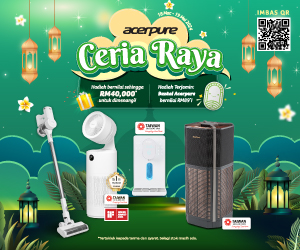Ford is the only car brand in the world with official TÜV allergy-tested certification
For an estimated 80 million people across Europe who suffer from some form of allergy, spring means reaching for the tissues and the medicine chest. Recognising the issue, Ford’s vehicle development teams go to great lengths to make its cars allergy friendly. In time for spring, Ford’s new five-seat C-MAX and seven-seat Grand C-MAX have been granted the “Allergy Tested Interior” Seal of Approval by Germany’s world renowned TÜV Rheinland testing authority. Ford is the only manufacturer with vehicles certified by TÜV and also was awarded the Quality Certificate by the Berlin-based European Centre for Allergy Research Foundation.
“We want to give our customers the best vehicle design, performance and quality, and the best passenger environment. That is why we are doing all we can to avoid or reduce to the absolute minimum all materials and substances that may pose an allergic risk,” said Caspar Dirk Hohage, engineering director, Ford of Europe. “We are the only vehicle manufacturer in the world with cars that are independently verified and certificated as allergy-tested by the TÜV.”
The new five-seat C-MAX and seven-seat Grand C-MAX join a long list of TÜV certified Ford models, which include Fiesta, the outgoing Focus, S-MAX, Galaxy, Mondeo and Kuga. Nearly 4.5 million Ford cars on the road today have been certified by TÜV. The TÜV measurement and assessment results for all Ford cars are published online at www.TÜV.com. Typically, Ford tests more than 100 materials and components for allergy issues. In addition, all components that have direct and prolonged skin contact – such as the steering wheel and seat covers – are dermatologically-tested. Ford vehicles are also equipped with a high-performance pollen filter to prevent allergic pollens from entering the vehicle. Ford engineers avoid or minimise the use of materials such as latex, chrome and nickel, which can trigger an allergic reaction in some people.
TÜV certification officially confirms that interior materials used in the new Ford C-MAX models were specifically selected to minimise the risk of allergies for passengers and is only achieved after extensive and scientifically-verifiable tests for harmful substances and allergy-causing agents are carried out as part of the TÜV assessment process. Ford’s exacting focus on material and substance management is long-established. For more than 20 years, the company’s restricted substance standard has outlined what materials are to be avoided or eliminated in Ford products, services and processes and in the parts and materials provided by suppliers. To manage materials across the vehicle life-cycle, Ford has developed a comprehensive set of processes and system tools called Global Materials Management. These assist in communicating materials requirements to suppliers and in tracking the materials they use in the parts they manufacture. Ford has also implemented stringent internal requirements to increase the use of sustainable materials within its products such as the use of recycled, renewable, and lightweight materials.














